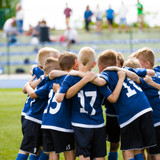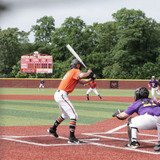Youth Sports Safety - A Back to School Guide
Shop Prescription Sports Glasses for Kids

Every year, hundreds of young people die tragically or get seriously injured while playing sports. However, much of that suffering can be alleviated with appropriate medical attention and precautions when a problem arises. Get "the game plan" for keeping your child safe when he/she engages in recreational activities in school.
To most sporty people, fall and winter seasons mean volleyball, gymnastics or hockey while spring means baseball, softball, tennis or basketball. Kids love to have fun and just be happy and what better way for them to burn off all that youthful energy than in getting a little bit sporty.
As a parent, though, you're worried about potential injuries that come with sporting – from cracked and broken bones, to strained or pulled muscles, to torn ligaments and ruptured tendons, just to mention a few of these injuries. Children are often considered to be more resilient than most parents realize, and possess the ability to snap back from an injury faster than adults. All the same, an ounce of prevention won't hurt, as a matter of fact, it will be worth much needed peace of mind for both parents and their kids. Here are tips on youth sports safety:
Diet and hydration:
Proper diet and exercise are vital for the all-round development and thriving of children. Exercising intensively speeds up metabolism, not only in children but also adults in general. Young athletes need lots of protein and carbohydrates during training and actual games as it helps keep their muscles full of the required building blocks and their energy levels also remain up.
Children should be well hydrated during both training and play sessions, and particularly in the warmer months of the year. This is because the body needs as much water as it loses as sweat. However, do not overdo it as too much water can cause nausea and cramping. Ensure that your child gets a comprehensive physical examination before engaging in any sporting activities. This is to ascertain your kids' physical condition as some kids' wellbeing can easily be worsened by exertion if they have pre-existing condtions.
Emergency situations:
Ensure that the team your child joins has exhaustive first aid training and materials and a fool-proof emergency plan available at all times; during training and in the actual game. A trainer or coach trained in CPR should always be available and should also have access to a telephone at all times.
As a parent, you should be fully informed of the possible injuries that could occur in a particular sport. You should also get clear guidelines on preventing the most common injuries. Do also get a background check on your child's coach. Ensure they are fully trained and professionally up to the task. The playground should also be free of holes, hazardous material and should have just the right length of grass.
Prescription Swim Goggles – Sports Goggles – Ski Goggles
Leader in Prescription Goggles and Glasses
Kids RX Swim Goggles – Adult RX Swim Goggles – Prescription Sports Goggles - RX Ski Goggles

 Canadian Dollar (CAD)
Canadian Dollar (CAD)
 Euro (EUR)
Euro (EUR)
 British Pound (GBP)
British Pound (GBP)






